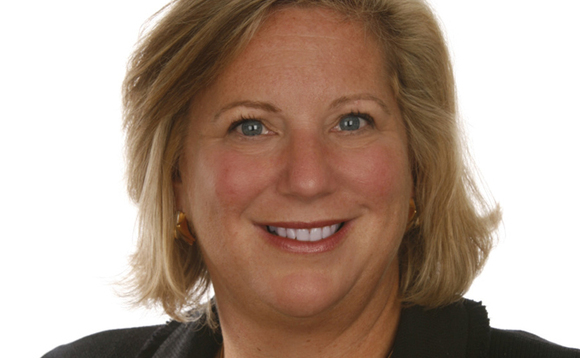
Teaching firms how to grow

Education is playing an increasingly pivotal role in a GP's strategy to drive the growth of its portfolio companies. Amy King investigates
As the market slows down and leverage dries up, private equity players are less able to rely on financial engineering to build their portfolio companies. And in a macroeconomic climate that hardly fosters growth, the growth trajectory is even less clear. For many investors, the appointment of an expert to an investee company's board of non-executive directors represents one avenue to value creation.
"When you are not getting any lift from the general economy, figuring out how to grow is a big challenge," says Pam Hendrickson, COO at Riverside. "You really have to work out how you can sell more in an economy that wants to buy less," she adds.
Knowledge is power
For that particular buyout house, part of the solution is education. The Riverside University meets in person once a year when portfolio companies are invited to a two-day event. New sales strategies are introduced, macroeconomic issues are discussed and breakout sessions take place covering topics such as breaking into a new market and corporate performance management. More hands-on workshops cover efficiency within sales departments and emotional persuasion techniques, and think tanks group companies by industry in facilitated meetings where CEOs seek advice from those in a similar position.
"People say that returning to their company with just one new idea after the event has a huge impact," says Hendrickson. "A lot of it is about teaching people to think in a different way," she adds.
Leveraging contacts
For one investee company, that light bulb moment was particularly bright. The company in questions focuses on water remediation in the insurance industry; not the most alluring of jobs by the admission of its own private equity-backer. At the annual university gathering, Riverside introduced the firm to Sales Brain, which has studied the way the brain makes buying decisions and translated that into marketing strategies.
"One of the things that Sales Brain will tell you is that people are very visual. Visual impact is so important," says Hendrickson. "The water remediation company used to send out PowerPoint presentations on the techniques they use. But having worked with Sales Brain, they built a mobile unit with a house that they flood in front of insurance carriers, and they visually demonstrate how their technique works," says Hendrickson. "And their sales went up $30m in six months," she adds. Talk about impact.
In a similar vein is Intel's Capital Global Summit held annually for the CEOs of its portfolio companies. Past events have involved "speed-dating" sessions, orchestrated by Intel to marry the needs of one firm with the services of another. Of course, one could argue that such internal synergies are only afforded to GPs boasting a portfolio of a certain size. But new kid on the block Find Invest Grow, which provides seed capital to start-ups launched by graduates across all sectors, aims to host as many of its portfolio companies at its HQ as possible in a bid to see firms cross-pollinate and bloom.
Educated decisions
Driving the wider private equity market is Albion Ventures, which recently launched the MBO School to educate companies currently considering the move on the processes and strategies needed for successful completion. Run in partnership with accountancy firm Smith & Williamson and law firm Bird & Bird, the school will hold its maiden two-day workshop in October and instruct on valuation, deal structures, appointing advisers, pitching, legal issues, financing, tax and negotiation strategies.
"For some businesses, and they can be smaller owner-managed, angel businesses or just smaller divisions of large businesses, MBOs are a great way of unlocking growth," says David Gudgin, a partner at Albion Ventures and the founder of MBO School. This is, of course, a source of dealflow for Albion, which manages around £230m across eight VCTs, and a method that cuts out the middle-man.
But despite the potential to encroach on their territory, corporate financiers appear to welcome the project. "The market is deep enough to accommodate this sort of initiative," says one corporate finance professional. "We'd welcome this sort of initiative, as long as it remains in the segment of the market in which the GP operates," he adds. In its capacity to instruct the wider business population on growth through private equity, the industry seems to welcome the initiative.
And British businesses really are growing through private equity involvement, if rising staff numbers are anything to go by. A recent survey of 75 UK private equity funds conducted for the unquote" British Private Equity Awards has revealed that three out of four GPs have seen job numbers increase within their portfolio companies over the past year.
In today's tough market, education is becoming a regular component of a GP's active management strategy. If knowledge is power, education – be it talks from experts, tips from contemporaries or training from leaders – represents a sustainable way to drive higher EBITDA across a GP's portfolio. Ultimately, it is an investment for a more lucrative exit in a sluggish economy.
The unquote" British Private Equity Awards 2012 will take place on 4 October in London. The full shortlist is available HERE. To book a table, visit www.britishprivateequityawards.com
Latest News
Stonehage Fleming raises USD 130m for largest fund to date, eyes 2024 programme
Sponsor acquired the public software group in July 2017 via the same-year vintage Partners Group Global Value 2017
Stonehage Fleming raises USD 130m for largest fund to date, eyes 2024 programme
Czech Republic-headquartered family office is targeting DACH and CEE region deals
Stonehage Fleming raises USD 130m for largest fund to date, eyes 2024 programme
Ex-Rocket Internet leader Bettina Curtze joins Swiss VC firm as partner and CFO
Stonehage Fleming raises USD 130m for largest fund to date, eyes 2024 programme
Estonia-registered VC could bolster LP base with fresh capital from funds-of-funds or pension funds








